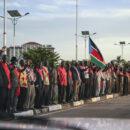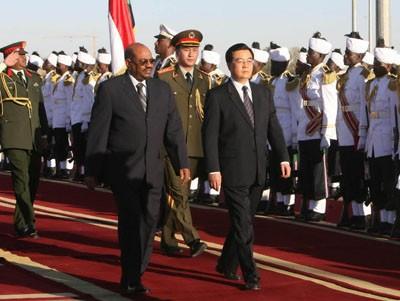Obama and Africa: an African second term? – By Richard Dowden

Despite his African heritage Barack Obama appears to have done little for his father’s continent in his first term as US president. He could not match George Bush’s generous legacy of millions of dollars poured in into health in Africa. Besides, he could not be seen to be worrying about such a remote and ostensibly inconsequential continent (for Americans, anyway) while the US was under threat from Islamic militants and its economy was shedding jobs.
All US presidents, and uniquely this one (given his unconventional background) have to prove themselves to the American people in their first term. In his case Obama had to prove that he was not some liberal pacifist wimp of foreign parentage who couldn’t use military might to punish America’s enemies. He had to “˜win’ the war in Iraq, track down Bin Laden and kill him and send drones over Afghanistan, Pakistan and Somalia to kill terrorists. That, by the way, may be a war crime under international law.
He also expended a huge amount of political capital getting his health scheme through Congress. It is still to be implemented. He has however been able to do little about America’s declining economy and the subsequent decline in political power in the world. As campaigning gets under way for next November’s election we will, I suspect, see little of the compassionate, intellectual man and more of warrior Obama.
If he wins a second term things will be different. He doesn’t need to get re-elected. Consequently we may see Obama trying to straighten out Africa’s bad politics. I am told he is ready for it. Contrary to appearances, he has remained quietly engaged with Africa throughout his first term, constantly phoning presidents and others – especially the Kenyans when there is tension. He has also had many of the Big Men to Washington for state visits. But it has been low profile.
The paradox of Africa at the moment is that, at last, it is where the hot money is going. Trade is booming and Africa’s economies are among the fastest growing on the planet. But the politics are as bad as ever and next year several countries, Kenya included, are facing elections which may spark violence and war. At this moment of economic opportunity there remains the great threat of disruption, and a dearth of leadership to guide countries around it or through it. There is no one like Olusegun Obasanjo, Thabo Mbeki or Nelson Mandela who could provide a continent-wide vision and summon other rulers to help deal with crises. The traditional Big Men – the South Africans and Nigerians – are inward looking, their leaders not confident of making the right calls and giving decisive leadership. They backed different horses in Cote d’Ivoire and, like almost all African governments, kept quiet about Libya.
So there is a role for Obama in his second term, maybe not too prominent, but as a consensus builder. US interests outside West African oil are almost purely concentrated on making Africa successful and secure. Future generations may wonder how on earth China managed to get every one of Africa’s rulers to come and shake hands with the Chinese president and premier in 2006 while the United States never even bothered to invite them. If the US is going to continue to be sole or joint Top Nation, it surely needs a substantial engagement in Africa beyond aid money and fighting terrorism. Obama could provide that.
Richard Dowden is Director of the Royal African Society and author of Africa: altered states, ordinary miracles






